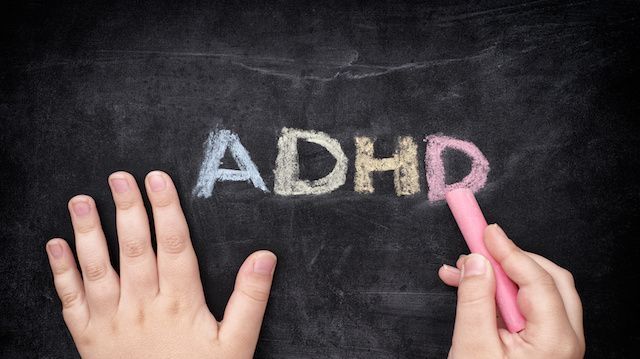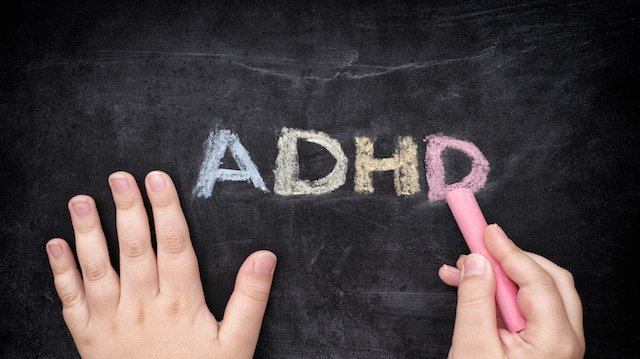
Multiple studies have shown a link between food allergies and attention-deficit/hyperactivity disorder (ADHD). According to recent investigations, many of the same symptoms that occur in allergies also occur in ADHD. Because of this strong correlation, some researchers are questioning if ADHD is more of an allergic reaction than a mental health condition. Read more about the link between food allergies and ADHD below:
How food allergies and ADHD could be linked
According to research, some foods can directly affect neurotransmitters in the brain, including areas that regulate impulse control, mood, appetite, anger, hyperactivity and sleep. Many of these symptoms are also associated with children and adults who have ADHD. Researchers believe that about 40 percent of children with ADHD grow out of the condition as they age, which could further support the idea that the condition is more of an allergic reaction to certain foods in those individuals.
According to recent research, the following foods could be instigating ADHD symptoms in adults and children:
Gluten
If you pay attention to health headlines these days, it seems that gluten is the culprit for every disease and health condition. But in the case of ADHD, there is evidence that removing gluten could make a difference. Gluten is a protein that is difficult for some people to digest. A gluten allergy makes it harder for a person to absorb nutrients and can lead to developmental delays. Gluten is likely to promote ADHD symptoms in children who have a sensitivity or allergy to the gluten protein.
In a 2011 study published in The Primary Care Companion for CNS Disorders, of 67 children and adults with ADHD, 10 of them tested positive for celiac disease (an extreme allergy to gluten). When these ADHD patients removed gluten from their diet, their symptoms improved significantly. However, for individuals who did not have a gluten allergy, eliminating gluten was unlikely to have an effect, further supporting the theory that ADHD symptoms could be the result of an allergic reaction.
Dairy
Just as gluten is a protein contained in certain grains, casein is a protein found in dairy products. There are a number of humans who have trouble processing this protein, which can promote symptoms related to ADHD, including “brain fog.” According to a Dutch study published in The Lancet in 2011, when children were taken off dairy and other suspected ADHD “trigger” foods, their symptoms of ADHD significantly reduced.
Food dyes
There have been stories linking hyperactivity in children to food dyes and additives since the 1970s. However, the evidence in these studies has been difficult to interpret. In 2008, the FDA conducted a review of studies linking ADHD to food dyes reaching back to 1975. The FDA found that food dyes do affect a subgroup of children with ADHD. The best way to determine if food dyes are influencing ADHD symptoms is to try eliminating them for several weeks to see if it makes any difference in behavior or concentration.
Other allergies
 A 2013 study published in the Annals of Asthma, Allergies and Immunology found that children who have ADHD are more likely to have skin allergies and asthma. Studies have also found that pesticide exposure increases the likelihood that a child develops ADHD. If you have skin allergies or other food allergies in addition to ADHD symptoms, an elimination diet could be beneficial in discovering which foods (or pesticides in those foods) are making your ADHD symptoms worse.
A 2013 study published in the Annals of Asthma, Allergies and Immunology found that children who have ADHD are more likely to have skin allergies and asthma. Studies have also found that pesticide exposure increases the likelihood that a child develops ADHD. If you have skin allergies or other food allergies in addition to ADHD symptoms, an elimination diet could be beneficial in discovering which foods (or pesticides in those foods) are making your ADHD symptoms worse.
How to pinpoint an allergy
The best way to find food sensitivities is to try an elimination diet. Eliminate one or several suspected foods for a month or two and see if ADHD symptoms fade. Reintroduce foods one at a time to see if a specific food brings on symptoms. You can also try food allergy testing to identify potential food allergens. However, allergy testing is not always accurate, and in some cases will not identify all foods that may be causing problems. For best results, follow your elimination diet along with allergy testing under the supervision of your physician.
Although the root cause and method for prevention of ADHD has yet to be discovered, there is some evidence that suggests that diet may be more closely linked to ADHD symptoms than previously thought. Although we do not expect a complete elimination of ADHD symptoms, identifying foods that make ADHD worse and eliminating them from the diet can go a long way toward preventing some of the worst symptoms of ADHD.
—The Alternative Daily
Sources:
http://www.ncbi.nlm.nih.gov/pubmed/23886227
http://www.additudemag.com/adhd/article/9807.html
http://www.thelancet.com/journals/lancet/article/PIIS0140-6736(10)62227-1/abstract
http://www.ncbi.nlm.nih.gov/pmc/articles/PMC3184556
http://www.fda.gov/downloads/AdvisoryCommittees/CommitteesMeetingMaterials/FoodAdvisoryCommittee/UCM273033.pdf
http://pediatrics.aappublications.org/content/125/6/e1270.short
http://www.biomedcentral.com/content/pdf/s12940-015-0030-y.pdf

